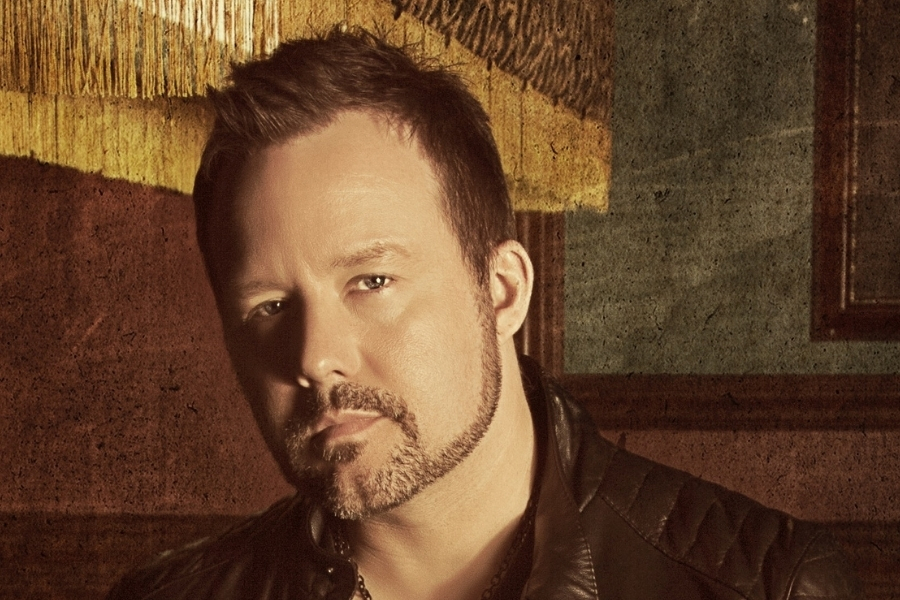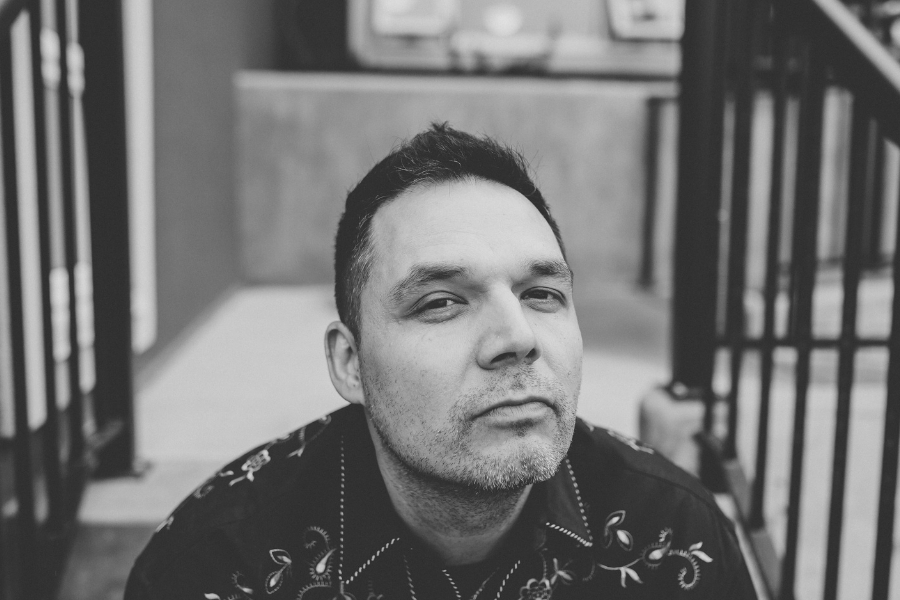In these socially desolate times with no live concerts or much else allowed, one can draw inspiration from Glenn Copeland. An African American transgender man who moved to Canada as a woman in 1961 to study classical music, Copeland’s life has seen a great deal of change, both internal and societal.
Born Beverly Glenn-Copeland in Philadelphia to a musical household where his father sent him to learn piano with his own childhood instructor. This yielded poor results; intimidated by his father’s prowess, the younger Copeland avoided the instrument for years after.
In 1961, Copeland was among the first Black students admitted to McGill University, and felt isolated in the heterosexual atmosphere where transgender wasn’t yet a recognized term. Copeland lived as an out lesbian while at McGill, which nearly got him kicked out. Accounts of these early years in Montreal describe Copeland alternately as a folk singer, a jazz artist and a blues singer. Copeland decamped for Toronto in 1967 at the age of 23, seeking a break from academia.
In 1970, his first two albums were released, by CBC and GRT. Some CBC radio albums are identical to contemporary commercial releases by the same artist, but often we get completely different albums, within a year of each other, which is the case with Copeland’s first two self titled records. Working with Canadian heavyweights, including Doug Riley and Lenny Breau, the album is often considered a jazz record, but Copeland insists the music is not itself jazz; the jazzy chords appear in classical music and there is no improvisation or jazzy structure to the songs. The CBC record was recorded live, each song in one take, according to Copeland.
Unfortunately, nobody bought the GRT release, and the CBC one quickly slipped into obscurity. In a recent interview with Johnny Hockin for Redbull Music Academy, Copeland explained “… they didn’t even have a category to put it in. In those days, categories were absolutely critical. If you weren’t in a category, you just existed out in space somewhere.”
The music is moody, and the vocals often brooding. While the album went nowhere at the time, collectors hell-bent on owning the CBC original (250 copies pressed) can now pay about 1500$ for the privilege. It is now well regarded as an album compatible with the likes of contemporary Terry Callier or Maxine Weldon. The vocals are positively operatic at some points, soars in a controlled environment. Copeland’s next album was 13 years away, but he was still active in the Montreal music scene and recording in Toronto, with Bruce Cockburn and Ken Friesen from True North Records, as well as ex- Kensington Market and Edward Bear alumnus Gene Martynec.
Copeland provided music for the local underground movie “Montreal Main” which yielded no commercial release, but a re-worked version of the title song was released on his 1983’s “At Last.” In the original movie version, he plays an organ and gives a sparse vocal delivery. The remake sounds like its early ‘80s vintage, with pounding drum tracks and newer keyboards.
Through the 1970’s and ‘80s, Copeland’s bread and butter gig was on the Mr. Dressup Show playing himself as Beverly. Mr. Dressup afforded Copeland plenty of studio tinkering time. He still lived a public life as ‘Beverley from Mr. Dressup,’ and “you couldn’t be transgender and writing for children,” so he remained Beverly despite having felt like a male since early childhood.
This time to explore music creation resulted in an unsung cassette release that led to Copeland’s late life popularity among a younger crowd.
“Keyboard Fantasies” was released in 1986, recorded in relative isolation in rural Hunstville, Ontario. Copeland employed a then-new Atari computer platform with a basic drum machine and a built-in palette of sounds which simulate orchestra instruments. “If you squint your ears,” Copeland told Fiona Alison Duncan in Sense.com recently, “you can almost pretend it’s a violin. It also gave me access to sounds traditional instruments couldn’t make.” A Yamaha DX7 and Roland TR 707 were used in this remote environment to create a variety of soundscapes and songs.
Three decades passed. Then prominent Japanese record collector Ryota Masuko got in touch, bought the remaining cassettes from Copeland, and re-sold them to an appreciative clientele. A reissue followed, and at the age of 74, Copeland found himself preparing for a world tour. The material on “Keyboard Fantasies” was largely forgotten by this time, as Copeland told Devan Diaz at Papermag.com; “I don’t listen to my own music. When it’s done. That’s it. I might listen to it a bit after it’s finished, but usually I try to move on to the next thing.” Nonetheless, Copeland lent the master recordings he had to a reissue project. The 1970 CBC album has joined the other album from that year in an afterlife as a reissue. “Primal Prayer,” a 2004 album recorded under the name Phynix was reissued last year.
Perhaps it’s his 40-plus years practicing Buddhism, but Copeland can wait to finish a song. “Caspian’s Dream” took about 30 years and an hour or so. He explained to Fiona Alison Duncan, “in 1970, this 8-bar phrase came to me on guitar, and it was so haunting. I tried to come up with something for it, and I couldn’t. I revisited it three more times, and nothing. Then, about 8 years ago, the whole thing came through. Within an hour, a song was written and it’s a very deep thing.”
From rural New Brunswick where he settled with his wife Elizabeth, touring took Copeland to Japan where he met Masuko, the d.j. who fired up Copeland’s stage career. Copeland tours with a 5-piece band and concentrates on songwriting instead of keyboards. He told Johnny Hockin, “people began asking me to play, and I thought why (now)- then I realized it was a younger generation that was interested in this stuff I had been writing all these years.”
Unfortunately, Covid spread far and fast, and Copeland like about everyone else, was caught up in the virus’ ongoing consequences. With a new reissue and world tour planned, the Copelands sold their New Brunswick home and started looking for a place in the Quebec Laurentians. The New Brunswick place sold, the music economy stopped, and the elderly couple found themselves in a jam. A crowdfunding endeavor and some other generous fans have kept the pair housed while their lives are on hold.
Glenn Copeland self-identified publicly as transgender in 2002 and has since adopted Glenn as his first name. His website is still https://beverlyglenncopeland.com/about where one can find most of Copeland’s music.
Last fall, Transmissions was released. It is a collection going back to 1970, including his first new song in 15 years. Copeland will be a part of Wavelength’s only festival on February 27th in partnership with Harbourfront’s Kuumba Festival online. Keyboard Fantasies will be reissued again this April, by the Transgressive label, on vinyl, cassette, and for the first time, on c.d.
In a recent statement addressed to fans, Copeland shared “… I have listened to your recent musings about the hope the music inspires and the calm it brings, finally understanding that the transmissions sent through me from what I call the Universal Broadcasting System are helpful to accomplish the UBS’s purpose; namely, that of bringing us together as a single human family at last.”
Describing his modern success from an old cassette, Copeland explained his prior sense of resignation over his music releases to Papermag’s Devan Diaz; “I never thought this would happen… after so long, I just assumed I didn’t fit. I never knew there would be a time when not fitting in would fit. Now there is, thanks to your generation!” Sometimes obscurity and isolation of the day can yield music that tomorrow’s fans might enjoy. Something to consider in this unprecedented mass isolation we are going through in this cursed Covid-19 time.
(Photo taken by: Maria Jose Govea)



